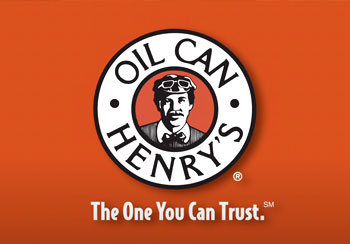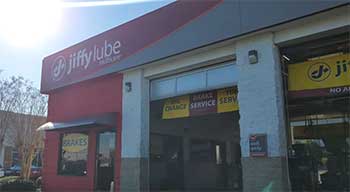When it comes to car maintenance and repairs, most people turn to quick-lube chains like Jiffy Lube and Oil Can Henry’s. But if you’re thinking about opening your own franchise, you may be wondering—which is the better business opportunity?
In this comprehensive guide, we’ll compare the pros, cons, costs, and key differences between Oil Can Henry’s and Jiffy Lube franchises. Read on to find out which auto service franchise could be the right fit for you.
A Brief Comparison Table
| Aspects | Oil Can Henry’s | Jiffy Lube |
| Year Founded | 1975 | 1971 |
| # of Locations | 80+ | 2,000+ |
| Initial Investment Range | $331,000 – $569,500 | $216,810 – $3,245,585 |
| Royalty Fees | 5% of net sales | 8-10% of gross sales |
| Training Length | 8 weeks | 4-6 weeks |
| Territory Options | Not exclusive | Exclusive territories available |
| Annual Sales Estimate Per Store | $700,000 – $1.5 million | $737,000 – $2,117,000 |
| Brand Recognition | Strong regional presence | National recognition |
| Marketing Support | Local & national support | Full agency-quality materials |
Overview of Oil Can Henry’s
Oil Can Henry’s is a West Coast-based fast-lube and automotive service franchise. They perform quick oil changes, preventative maintenance, and standard repairs.
Here’s a quick look at Oil Can Henry’s franchises:

- Founded in Josephine County, Oregon in 1975 and began franchising in 1980.
- Currently over 80 locations, all in California, Oregon, Washington, Colorado, Arizona, and Nevada.
- Oil changes in about 20 minutes as their main claim to fame. They also perform inspections, tune-ups, and services like brake repair, air conditioning, transmission fluid changes, etc.
- Additional services include mounting and balancing tires, replacing batteries, wiper blades, headlights, and other routine maintenance.
- Both interior and exterior car cleaning services available.
- Focus on speed, quality of service, and creating a comfortable waiting lounge for customers.
- Franchisees go through extensive 8-week training on operations, marketing, human resources, and hands-on oil change instruction.
- Industry-leading 10-year or 10,000 mile nationwide warranty on lube services.
Overview of Jiffy Lube
Jiffy Lube is the largest quick-lube provider in the US with over 2,000 locations nationwide. They are known for fast oil changes and have expanded into comprehensive auto services.
Here are the key facts about Jiffy Lube franchises:
- Founded in Utah in 1971, began franchising in 1979. Acquired by Shell Oil Company in 2002.
- Larger franchise network with locations across the U.S. Plus a few hundred company-owned corporate stores.
- Oil change process takes about 15 minutes. They also perform preventative maintenance like air conditioning services, fluid flushes, fuel system cleaning, alignments, new batteries, and brakes/tires.
- Additional services for fleets, inspection preparation, and some emissions repair.
- Focus on convenience through online scheduling and building locations in high-traffic areas near malls, grocery stores, etc.
- 4-6 week training program on operations, automotive service, and management skills.
- Jiffy Lube University provides ongoing training. Franchisees get access to proprietary management software and tools.
- 12 month/12,000 mile re-service guarantee on Jiffy Lube signature oil change.
Also Read: Comparison Between Valvoline and Instant Oil Change
Key Differences Between Oil Can Henry’s And Jiffy Lube
Now that we’ve covered the basics of each franchise, let’s compare them across several factors for those considering opening one.
1. Initial Franchise Investment Cost
One major factor in choosing a franchise is the initial investment cost. This includes the franchise fee to the parent company, real estate, equipment, inventory, working capital, etc required to open.
Oil Can Henry’s has a total estimated initial investment range of $331,000 to $569,500. This includes:
- Franchise fee of $35,000
- Real estate lease, equipment, supplies, signage, opening inventory, etc.
- Working capital and additional funds.
Jiffy Lube’s estimated initial investment range is $216,810 to $3,245,585. Cost components include:
- Franchise fee starting at $25,000
- Real estate purchase or lease
- Equipment like car lifts, tools, IT hardware
- Initial inventory, supplies, marketing budget
- 3 months working capital
Jiffy Lube offers lower startup costs for leasing an existing location. But building a new stand-alone Jiffy Lube center is much pricier. Both franchises require hefty starting capital. Jiffy Lube can be slightly more affordable for a basic leased site.
2. Ongoing Fees
Once open for business, franchisees pay regular fees and royalties back to the parent company. This helps fund their training and support.
Oil Can Henry’s has the following ongoing fees:

- 5% royalty on net sales
- 1% marketing fee
- 1% technology fee
- Rent for leased location.
Jiffy Lube’s ongoing fees include:
- 8-10% royalty fee on gross sales
- 5% national marketing fee
- Rent for leased sites
- 1% tech fee (for new sites)
Jiffy Lube’s royalties tend to be a bit higher than Oil Can Henry’s. However, Jiffy Lube bases it on gross sales. Oil Can Henry’s uses net sales, which is more profitable for franchisees. Both change marketing fees periodically.
3. Training and Support
Opening a car service franchise is a big undertaking. Extensive training and ongoing support is crucial for success.
Oil Can Henry’s provides:
- 8 weeks of hands-on training at company headquarters covering operations, management, sales, HR, marketing, and oil change technical skills.
- Additional onsite support during opening of your location.
- Ongoing support with field operations, IT systems, marketing assets, and an annual convention.
Jiffy Lube offers:
- 4-6 weeks of operational training at HQ and an existing franchise.
- Ongoing training through Jiffy Lube University on leadership, store operations, customer service, automotive tech, and products.
- Field operations coaches offer regular support and advice.
- National marketing support and technology systems.
- Online management training portal with courses and tools.
Both franchises provide extensive initial training and robust ongoing support. Oil Can Henry’s training time is double Jiffy Lube’s, which can better prepare new franchisees without auto industry experience. But Jiffy Lube’s online university is an advantage.
4. Location Territory and Sites
When launching a franchise, the available territories and site options impact startup costs and ongoing success.
Oil Can Henry’s focuses on securing prime real estate sites in targeted metro areas across 6 Western states. They don’t promise exclusive territories but aim to minimize direct competition.
Jiffy Lube offers large exclusive territories in most regions so franchisees can open multiple locations. Site selection focuses on easy-access locations near busy retail centers.
Jiffy Lube’s broad national presence and vast territory options offer an advantage. Oil Can Henry’s smaller footprint limits expansion but ensures brand consistency.
5. Revenue Potential and Profit Margin
Ultimately, profitability potential determines which franchise presents the best investment opportunity.
Oil Can Henry’s doesn’t publish exact financial projections for average unit volumes. Industry estimates suggest Oil Can Henry’s locations generate around $700,000 to $1.5 million in gross sales annually. Profit margins range from 10-20% before royalty fees.
Jiffy Lube estimates annual gross sales volumes between $737,000 and $2,117,000 per store. Profit margins tend to run between 10-15% of net sales. However, margins can vary significantly based on your market, rents, local wages, and automotive services pricing.
On the whole, Jiffy Lube offers slightly higher sales and profit forecasts based on their national presence and scale. But individual store revenues depend more on franchisee execution and location.
6. Brand Recognition and Marketing Support
A major advantage of franchising is leveraging a recognized national brand. Brand awareness makes marketing easier and attracts customers.
Thanks to its 40+ year history and West Coast focus, Oil Can Henry’s enjoys strong brand familiarity and reputation in its core markets. The company provides national and local marketing support through tools like direct mail, radio, digital ads, and social media.
Jiffy Lube has spent decades building unmatched brand recognition. Their TV ads, partnerships (like NASCAR), and community programs boost awareness everywhere. Franchisees gain access to their agency-quality marketing materials and national campaign promotions.
Jiffy Lube’s superior national brand recognition gives them an edge in customer acquisition and marketing. But Oil Can Henry’s still maintains solid regional brand familiarity.
Also Read: Comparison Between Midas And Jiffy Lube
Frequently Asked Questions (FAQs)
For older vehicles with over 75,000 miles, Jiffy Lube’s high mileage oil can be worth using. It contains more detergents and additives tailored for engines with more wear. The synthetic blend helps reduce oil burnoff and leaks. It may be pricier than standard oil, but can be worth it for maximizing the lifespan of high mileage vehicles. Ask your Jiffy Lube mechanic if they recommend their signature high mileage oil for your older car.
Oil Can Henry’s was founded in 1975 by Don Henry in Grants Pass, Oregon. Henry got his start changing oil at a gas station while in college. He purchased a 400-square foot garage and began offering quick oil changes with a smile under the name Oil Can Henry’s. The business grew throughout Oregon and Don eventually began franchising the Oil Can Henry’s brand. The company remains based in Oregon today.
Jiffy Lube’s high mileage synthetic blend oil contains more additives like detergents, antioxidants, seal conditioners and extra zinc compared to conventional oil. These additives help minimize leaks and oil breakdown in older, worn engines. Conventional oil can still protect newer engines. But for older cars, high mileage oil keeps engines cleaner while reducing wear and oil consumption. The extra additives come at a slightly higher price than standard oil.
Also Read: Comparison Between Take 5 Oil and Valvoline
Verdict
In the end, is one of these automotive service franchises clearly better than the other?
The answer depends on your goals, finances, and capabilities. For seasoned auto industry veterans with ample capital to invest, Jiffy Lube provides unrivaled brand recognition and national presence. But for smaller scale entrepreneurs new to the car service sector, Oil Can Henry’s offers in-depth training and profitable core markets.
Those focused strictly on profitability may favor Oil Can Henry’s slightly higher margins and sales royalties based on net figures. However, Jiffy Lube’s sheer size and geographic footprints offer more room for expansion over time.
Do your due diligence on unit economics and research these franchises thoroughly before committing. Weigh factors like your available capital, knowledge of the auto industry, geographic preferences, and business management capabilities. While both Jiffy Lube and Oil Can Henry’s can prove profitable, selecting the right fit for your skills and market gives you the best odds of success.
